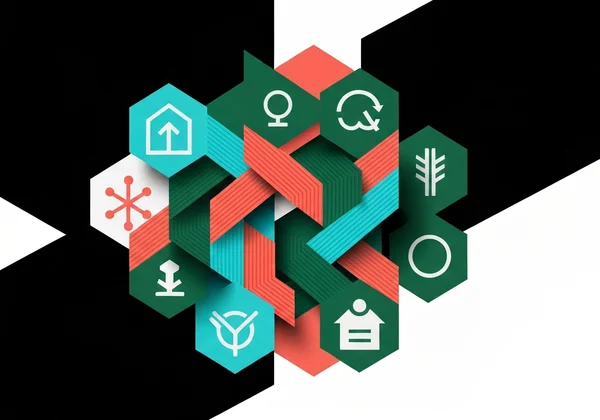道德測驗:你的倫理指南針是什麼?
September 7, 2025 | By Julian Croft
你曾問過自己:「道德究竟是什麼?」或者納悶為何你和一位摯友會對同一件事抱持截然不同的結論?這些問題都指向你的倫理指南針,它是塑造你價值觀和決策的內在指引。了解這個指南針不只是哲學上的探討,更是自我發現的根本環節。
本文將透過 道德基礎理論 的強大視角,探索你內在的道德準則。我們將剖析影響你對是非判斷的六大支柱,讓你更清楚地了解是什麼驅動著你的正義感、忠誠心和同情心。想知道這些基礎如何應用於你個人嗎?你可以參加我們的免費 道德測驗,探索你獨特的倫理特質。
什麼是道德測驗?理解你選擇背後的科學原理
道德測驗 是一種心理學工具,旨在描繪你獨特的倫理優先順序。它不是一個有正確或錯誤答案的考試,而是一面反映你直覺判斷過程的鏡子。最具洞察力的測驗都建立在科學框架之上,其中最受推崇的便是 道德基礎理論。
該理論由心理學家喬納森·海特(Jonathan Haidt)、克雷格·約瑟夫(Craig Joseph)和傑西·格雷厄姆(Jesse Graham)提出,它認為我們的道德就像一套味蕾。正如我們的舌頭對甜、酸、鹹、苦和鮮味敏感一樣,我們的心智也擁有數種直覺的道德基礎。不同的文化和生活經驗教導我們更多地依賴某些基礎而非其他,這解釋了世界各地道德觀念的廣泛多樣性。

道德指南針測驗如何揭示你的內心世界
倫理心理學 的核心思想是超越簡單地將行為標籤為「好」或「壞」,而是理解我們道德判斷的 緣由。一個基於 道德基礎理論 的 道德指南針測驗 能識別你對倫理困境的快速、直覺反應。這些反應根植於你的天生基礎,它們作為直覺觸發器,告訴你某件事具有道德相關性。
將其視為道德判斷的初稿,你的意識心智隨後會進行修正和合理化。透過識別這些基礎觸發器,我們可以開始理解我們對複雜問題(從社會正義辯論到個人分歧)的即時情感反應。
為何理解你的道德基礎對你的價值觀很重要
了解你主要的 道德價值觀 對於個人成長至關重要。當你的行為與你的核心原則一致時,你會體驗到正直和目的感。反之,當你違背它們時,你可能會感到內疚或內心衝突。理解你的道德基礎有助於你更清楚地辨識這些核心原則。
這份知識賦予你能力做出更有意識的選擇,自信地應對倫理挑戰,並建立更牢固的人際關係。它讓你能夠理解他人為何持有不同觀點,從而培養同理心和更具建設性的對話。第一步是識別哪些基礎與你產生最強烈的共鳴,這正是 線上道德測驗 可以幫助你描繪出來的。
六種道德基礎:你的倫理指南針解析
你的 倫理指南針 由六種不同的道德基礎校準。雖然每個人都擁有這六種基礎,但我們每個人傾向於以不同的方式優先排序它們。讓我們探索每一種,以了解它們如何構成你獨特的道德特質。

1. 關懷/傷害:保護弱勢
這個基礎根植於我們身為哺乳動物需要照顧後代的演化歷史。它使我們對痛苦和殘酷的跡象敏感,並對那些弱勢或痛苦的人產生同情心。優先考慮這個基礎的人通常被保護他人免受傷害和促進福祉的願望所驅動。
2. 公平/欺騙:正義、權利與互惠
公平基礎建立在比例、正義和個人權利的原則之上。它關乎己所不欲,勿施於人,並確保每個人都得到他們應得的。這個基礎使我們對不平等、欺騙和詐欺問題敏感,驅使我們渴望一個公正公平的社會。
3. 忠誠/背叛:群體凝聚力與信任
作為社會生物,人類進化為在群體中茁壯成長。忠誠基礎支撐著我們形成有凝聚力的團隊、社區和國家的能力。它使我們重視愛國主義、為群體犧牲以及警惕背叛。在這個基礎上得分高的人對其內群體有強烈的歸屬感和責任感。
4. 權威/顛覆:尊重傳統與階層
這個基礎與我們生活在等級社會結構中的歷史有關。它培養了對合法權威、傳統和提供穩定與秩序的機構的尊重。它使我們對不尊重、顛覆和混亂的跡象敏感。這個價值有助於維護社區內的社會凝聚力和共享規範。
5. 聖潔/墮落:純潔、潔淨與神聖
聖潔基礎源於避免污染物和病原體的演化挑戰。它已經演變成一種更廣泛的純潔感,包括身體和精神上的。它使我們感覺有些事物是神聖或高尚的,而有些則是墮落或褻瀆的。這個基礎經常影響關於身體、宗教和被認為神聖的事物的信仰。
6. 自由/壓迫:自由與抵抗支配
這是最新被識別的基礎。自由基礎關乎擺脫他人控制和支配的感覺。它會對霸凌者、暴君和任何試圖限制個人自主權的人觸發強烈反應。優先考慮這個價值的人深受個人自由和抵抗壓迫的驅動。一個 倫理指南針測驗 可以揭示這個基礎對你決策的影響有多強烈。
這些道德基礎如何塑造你的倫理決策
理解這六個基礎,就像擁有了自己道德心智的使用手冊。它能幫助你解讀自己的反應,並提供一個框架,讓你能夠在這個充滿多元觀點的世界中航行。這份知識對你的生活有著深遠的實際應用。
識別你主要的道德價值觀
透過反思這六個基礎,你可以開始 識別你主要的道德價值觀。你是最容易被同情心(關懷)的故事所感動,還是被對正義(公平)的呼籲所觸動?對你社群的忠誠(忠誠)是否超越了你對個人自由(自由)的關切?
沒有正確或錯誤的答案。這些價值觀的獨特組合形成了你個人的道德印記。認識這個印記是自我認識的精髓。一個結構化的 道德評估測驗 是獲得你基礎優先順序清晰客觀快照的最有效方法之一。
對社會觀點和理解他人的影響
道德基礎理論 最強大的應用之一是它培養同理心的能力。當你理解他人的強烈意見源於對權威或聖潔的根深蒂固的價值觀——這些基礎你可能不那麼重視——你就會更容易將他們視為並非不理性,而是從不同的道德框架運作。
這種視角可以將爭議性的辯論轉化為真正理解的機會。它有助於解釋政治分歧、文化差異,甚至人際衝突。透過欣賞道德基礎的多樣性,你可以與那些看待世界方式不同的人進行更具建設性的互動。

尋找你的方向:參加我們的免費道德指南針測驗
你現在已經探索了塑造你自我的六種道德基礎的驚人框架。這份知識是理解你的直覺反應、應對複雜倫理困境以及建立更真實生活的關鍵。但理論只是開始;真正的旅程在於將其應用於自己。

你準備好發現哪些基礎定義了你的倫理指南針了嗎?不要只是猜測——找出你的真北。參加我們的免費道德測驗,即時分析你獨特的道德特質。我們以科學為基礎的測驗提供個人化的洞察,幫助你在通往更大自我意識和道德成長的道路上前進。
關於道德價值觀與測驗的常見問題
什麼是道德測驗,它如何幫助我?
道德測驗 是一種旨在幫助你探索倫理決策過程的工具。與有對錯答案的測驗不同,它的目的是自我反思。它向你呈現挑戰你推理的情境,幫助你識別你優先考慮的道德基礎——例如關懷、公平或忠誠。它透過清晰、結構化的方式審視你內在的價值觀,促進自我意識和個人成長。
我該如何找出我的道德和價值觀?
找出你的道德是一個內省的旅程。你可以從反思過去的決定開始,並識別引導你的原則。寫日記記錄那些引發強烈情感反應的情境,也能揭示你的核心價值觀。若想採用更直接和科學的方法,進行像 道德價值觀測驗 這樣的工具可以根據既定的心理學框架提供客觀的洞察。
道德測驗能告訴我是否是個好人嗎?
雖然許多人尋找「我是好人嗎測驗」,但道德測驗並非旨在給出簡單的「好」或「壞」判斷。相反,它揭示了你獨特的道德優先順序以及你用來做決策的倫理框架。「好人」是主觀的,並透過行動來展現。這個測驗提供自我知識,這是做出有意識、與價值觀一致選擇的基礎。它是一個理解的工具,而非判斷的工具。
四個基本的道德原則是什麼?
雖然 道德基礎理論 識別出六個基礎,但古典生物倫理學通常提到四個基本原則:1) 自主性(尊重個人選擇的權利),2) 行善(為他人謀求最大利益),3) 不傷害(「不造成傷害」的義務),以及 4) 正義(資源和利益的公平分配)。這些原則經常與自由、關懷和公平的基礎重疊。
同理心是核心道德價值觀嗎?
同理心是一種重要的心理能力,它使道德得以實現,但它更像是一種動力而非目的地。它是 關懷/傷害 基礎的情感燃料,讓我們能夠感受他人的感受,並激勵我們減輕他們的痛苦。雖然同理心本身不是一個基礎,但它是道德生活的重要組成部分,也是富有同情心和倫理行為的強大驅動力。